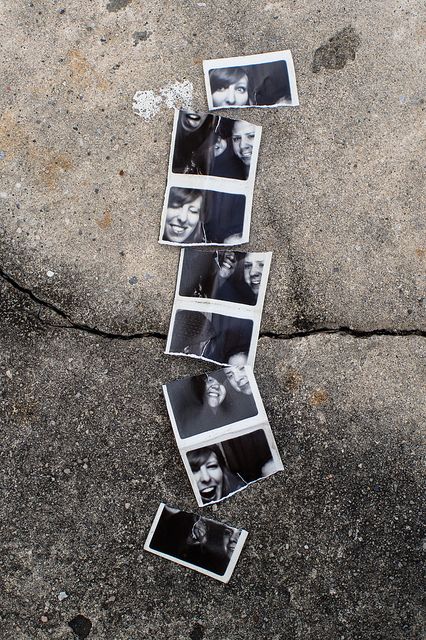A lesson on why some friendships are best left behind
At some point you have probably encountered a friendship-destroyer. I’m sure you know her, or one just like her. She latches on to you, you introduce her to your friends, she latches on to your friends. She causes fights and provokes jealousies. Your friends, who were getting along just fine before, are divided, and eventually their relationships are destroyed.
It happens in stages. At first everyone welcomes her, and she puts on her best face. She likes your friends and they like her. Before long, the dynamic shifts. You hear how after a night on the town she monopolised the one guy Sally was interested in, while Carol was left out completely. The other guys, the ones your friends aren’t keen on, will chase her, but she never shows any interest in them.
From her, you hear how she can’t help that people are jealous, that men show interest in her, that women find her threatening. And the other guys, the ones with no entanglements, always misinterpret her attention as something more. But it’s not her fault. Why is she always the bad guy?
There will be tears, heartache, anger, and when she is done, she makes a swift exit, latching on to the next friend, and their friends, and starts the process over. Meanwhile your friendships and relationships will never be quite the same.
Stupidly, I have let the same person do this to me twice. It was years apart, and I thought she had changed, finally grown up. I was wrong.
The first time, I had recently come out of a ten-year relationship, and was just establishing my own social networks as a single woman. As an introvert, most of my interactions tend to happen one-on-one, but on a couple of occasions, I had invited a group of my friends to come together. I included this particular girlfriend, and she seemed to engage and interact well with everyone. I was delighted. I should bring this group of friends together more often.
I didn’t know then that she would systematically rip the group apart.
The girl in question — let’s call her Joan — is an initiator. Joan needs constant activity, and is always suggesting meetups, events to attend and things for her friends to try. Before long she was arranging events and inviting my friends. I’m not partial to organisation, so when Joan stepped up, I sat back, grateful to follow her lead. It didn’t occur to me to ask why she was organising events with my friends, and not inviting me along to events with hers.
I should have seen the few glitches along the way. The girls who were wary, the guys who told me there was something not quite right. What I saw was the opportunity to have a group of people who I loved come together, to feel like I belonged, and to share in fun and warmth — so welcome after the desolation of my marriage.
The end came when Joan organised a camping trip. As usual she assumed control. She made lists of who should bring what, who should pay how much and to whom. My friends are laid back, and in this sort of situation, accommodating. There is no bean-counting and everyone is happy to share and let things just happen. We all assumed Joan would be the same.
Before we had even left I heard mumbled complaints from Joan. Janet hadn’t paid her share. Belinda and Michael had pulled out, upping the cost for everyone else. When we arrived she protested that my friends were disruptive and inconsiderate. The trip was tense and excruciating, and by the time we headed home, hardly anyone was speaking.
In the aftermath I heard how Joan had hoarded food and made it uncomfortable for anyone to relax and share and enjoy. From Joan: why did she get lumped with responsibility for everything? My friends had taken advantage and left her with the bill. She could never return to that camp site now. It wasn’t fair, and it wasn’t her fault.
I managed to salvage individual relationships, some more successfully than others, but I never brought that group together again. On birthdays or occasional gatherings, my friends would ask if Joan would be there, and then quietly opt out if the answer was yes.
Joan and I also spent less time together. When we did, I heard how she was fed up with being the one to always initiate. None of her friends ever made contact, they always left it to her, and then made her come to them. Having been on the other side, I thought it was likely she gave them no space or opportunity to try, and insisted on coming to them, as she had always done with me. Her work relationships were just as fraught. I saw her keeping a mental ledger that no one could ever repay. I bit my tongue.
We maintained this now-and-then friendship for many years, until she re-entered my life with gusto. This time it was because her relationship of ten-plus years was ending. I was her go-to person. I had been there before and I wouldn’t judge. It worked well for a while. It was a time I needed someone, too, and I imagined she had matured in the intervening years, so welcomed her in.
Before long she was eyeing-off my friends, only this time I knew what to expect. I kept a wall between us, and quietly observed as she made her move. I was her spring-board into a new social realm, one she embraced in a way I never did. I watched her carefully select victims, latch on, initiate social activity, create chaos, destabilise, and garner attention and control for herself. At least, that’s how it appeared from the outside.
The complaints started to trickle in, how she had ruined Julia’s chances with Steve, how she had left Cindy standing alone in a bar while she and another friend hooked up with two guys. And from her, how girls she met at parties felt threatened because their boyfriends spent time talking to her, how girls never liked her because they were jealous. She lamented being lonely, and the relationship patterns in her life that left her feeling sidelined, bullied, and unwelcome. Her thirtieth birthday party, for instance, was attended by a select few, who fit a certain physical mold, but almost no one who really knew her, and no one she had known for more than a year.
I tried to support her, but also cautioned that if she was worried about upsetting people and losing friends, maybe she shouldn’t latch on to her potential friends’ boyfriends. It was a red rag to a bull. She threw herself at men her friends had been, or wanted to be, involved with. She arranged meetups with guys whose girlfriends she knew felt insecure about her, and posted it all over her social media. There were check-ins and mentions everywhere they went, and everywhere the girlfriends could see.
At the same time she plastered our friendship all over her various walls. Publicly we appeared closer than we ever were in life. I couldn’t make a move without her splashing her electronic pee on me, like a cat marking its owner. This in itself caused more than one stir. I felt like I was a flag she wanted to wave in people’s faces. Then when she upset my friends, I was caught in the middle. She had marked me as her friend, a public extension of her, so her behaviour was somehow my fault.
Sure enough, relationships ended, friendships were destroyed. I lost a long-standing friend, whose boyfriend had been one of Joan’s targets, and though it was a friendship we had both outgrown, the way it happened saddens me.
The end for Joan and I came when she tried her antics on one of my oldest and dearest friends, Steph. They had met through me, and Joan latched on straight away. We formed a triad of sorts, which worked while I had my boyfriend in tow, allowing Joan to monopolise Steph without being too obvious and leaving me on my own. Later she tried to close in on Steph and exclude me. She failed and lost us both.
Joan had her next friend-victim lined up, someone vulnerable, whose name she began to pee all over her social media walls. I don’t need to watch to know the fallout will happen eventually, and that it will be ugly. There are already murmurs from people she has upset, hurt, or who have simply walked away, fed up with her attention-seeking antics.
I can’t help but wonder at her motives. She says she wants friendship and acceptance, but her behaviour destroys any chance she has of obtaining either. She latches on, leeches off, then has to cauterise her wounds and walk away. What I saw the second time around appeared strategic, as though she intended to carve a path of destruction. By the end ours was her only long-standing friendship, and she destroyed that, too.
I’m not sure if my story will resonate, but I have no doubt there are others like Joan around. I missed the warning signs the first time. I didn’t know to be wary when someone tried so hard to be my friend, I didn’t know to question why someone might need to make friends with my friends so badly. The second time, I had my guard up, but even then, I was slow to respond. Lasting friendships should develop gradually and evolve naturally. They should not be forced. And if someone doesn’t have friends of their own and needs to borrow mine, I now know to ask myself why, and back quietly away. I have learned my lesson, and I am no longer afraid to question when someone wants to be my friend, or to let them go.
This post first appeared in Rhonda Perky’s Bits on Jul 20, 2013





